Dying To Fit In
I remember telling my mother that I was getting ready to pledge a fraternity and she, in her simple wisdom, said to me, "Why would you pay all this money just to let some boys beat on you?", which, in hindsight, was a GREAT question, lol.
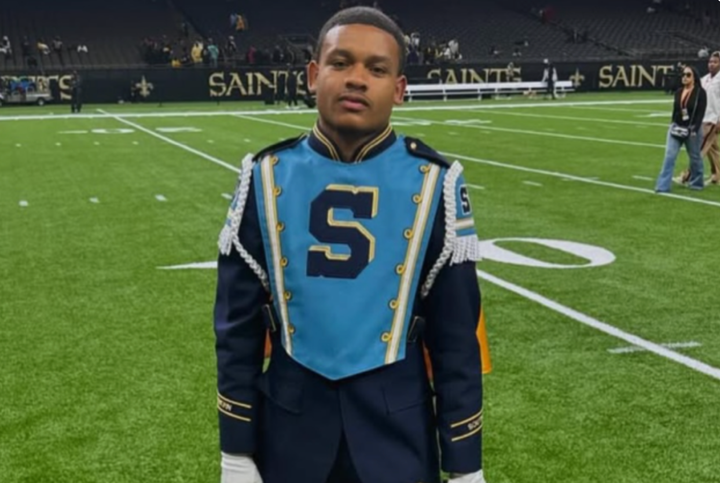
It Be Your Own 'Family'
In what's considered to be the most important myth of the Ancient Egyptian religion, the wise and just ruler of Egypt, Osiris, is murdered in cold-blood by his jealous brother so that his brother can usurp the throne of Egypt. After murdering his brother, the usurper then dismembers him and scatters his body parts throughout Egypt so that there's no hope that Osiris could ever be resurrected.
Isis, Osiris' wife and Divine counterpart, is devastated by her husband's murder and devotes the rest of her life to tracking down the pieces of his body so she can bring him back to life. Eventually, she finds enough of Osiris' remains to resurrect him temporarily—just long enough to conceive their son, Horus, the rightful heir to the Egyptian throne. From that point on, Isis and Horus engage in a cosmic battle to defeat his uncle and father's murderer, Set, in order to restore order to the world.

'Set' just so happens to also be the name that many of the Divine Nine Black Greek Letter organizations assign to the secret, not-so-secret, gatherings that their pledges attend on a nightly basis while undergoing a 'process' in which the pledge is broken down and built back up as a 'stronger', more refined member of their organization. Set is the Egyptian god of chaos, destruction, and disorder, and since Egyptian themes and mythology are deeply intertwined in these organization's ethos, it wouldn't surprise me at all if 'Set' was intentionally named this due to the the types of chaos that ensues at these gatherings.
It's no secret that pledges of fraternities and sororities often end up dead while undergoing the initiation rituals required by their soon to be "brothers" and "sisters". Rituals that often inflict mental and physical abuse and are usually more rooted in power dynamics than they are in camaraderie. The idea is that you go through these horrible trials with your line-brothers or sisters in order to form an unbreakable bond amongst each other. The reality is, though a bond may be formed by undergoing such demeaning and humiliating rituals, it is a trauma bond and nothing more.
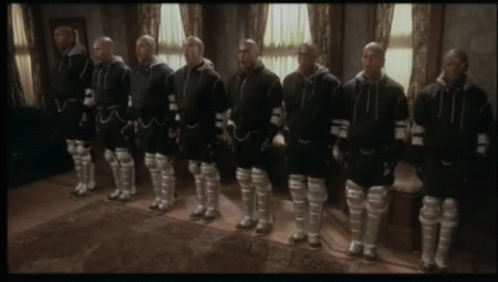
I remember telling my mother that I was getting ready to pledge a fraternity and she, in her simple wisdom, said to me, "Why would you pay all this money just to let some boys beat on you?", which, in hindsight, was a GREAT question, lol. Unfortunately, for both her and I, I was so lost in the sauce of social life in college that I couldn't see that anyone who was actually interested in being a "brother" to me would have no interest in harming me. I mean, sure, brothers fight from time to time but in those situations, both parties have equal opportunity to inflict and absorb pain. These are very different circumstances from what would happen at "set" where there'd be one group inflicting pain and a separate group who was expected to happily accept it without retaliating.

Ironically, fighting all the time is what led me to resent my older brother during my pre-teen and teenage years and what I was seeking in fraternity was the brotherhood that I couldn't find at home. It should come as no surprise that I didn't find the brotherhood I was seeking in fraternity either. Just more confusion, resentment, disgust, and further isolation. I've always been a pretty slim guy but I vividly remember once, while pledging, my ass being so swollen that I could feel it jiggle with each step that I took. But hey, at least I could skip lines and hop around at parties, wear Greek letters, and yell cool chants on the yard!

I would imagine that Caleb Wilson was seeking the same brotherhood that I was when he pledged Omega Psi Phi earlier this year. Unfortunately for Caleb, his desire for brotherhood ultimately cost him his life as it's been uncovered that he died from the blunt force trauma of being repeatedly punched in the chest by a few of his soon to be "brothers". "Brothers" who, after murdering him, changed his dead body out of his "set" clothes, drove him to the hospital, and told the nurses that he got injured playing basketball.
And now, multiple families are grieving. Caleb's family is grieving the loss of their son and his murderer's families are grieving the loss of their sons all because the group Caleb wanted to be accepted into had an entry fee of pointless suffering.

Fitting in and being accepted by the group is so hardwired into the human psyche that it would feel disingenuous of me to sit here and try and pretend that it's totally unavoidable. Those who were wise enough to avoid Greek life in college might argue otherwise and assert that they did not need to feel a part of a group in order to have a sense of identity. But I'd bet that they too desired and sought out groups of friends and likely conformed in some sort of way to fit into these groups because the alternative was not just loneliness but also "social suicide" — that is, being socially ostracized because no one deems you worthy of hanging out with.
So, even if you wouldn't technically put your life on the line to be accepted into a group, it shouldn't be hard to empathize with someone who wanted so badly to fit in and be accepted that they would subject themselves to potentially life threatening danger to achieve a sense of social status that would make them feel secure, important, and valuable. But it should also serve as a cautionary tale that following the group can often lead us to our demise.
Innies and Outies
Over the past couple weeks, I've been enthralled by the TV series Severance. I'm not spoiling much by telling you that the basis of the plot is that there's a technology called "Severance" in which willing participants can have a chip implanted into their brains which essentially splits their lives in two. This chip is controlled by some sort of proximity field where, once you come into range of a certain proximity, your personality, identity, memories and sense of self are completely switched out.
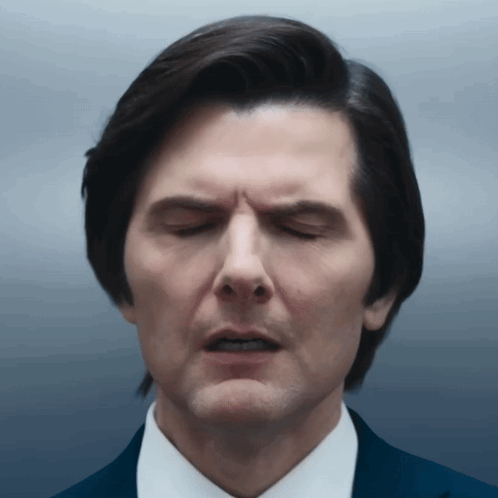
In this show, people volunteer for Severance in order to keep their work lives and personal lives separate. Each person has an "innie" and an "outie"—essentially the same person, but the "innie" knows nothing about the "outie's" existence, and vice versa. As you might imagine, this leads to some complex issues and serves as a brilliant meditation on the human condition and the lengths we’ll go to in order to avoid the suffering that is so critical to what it means to be human.
But what this show, coupled with my own personal experience, has also made apparent to me is that many of us are still dying to fit in, sacrificing a part of ourselves each day just to be accepted by a company, to have a job that grants social status, and to secure a livelihood. In my experience, what makes corporate jobs feel so soul-sucking isn’t just the meaningless work (though that plays a big part) but also the fact that you often can’t truly be yourself while at work.
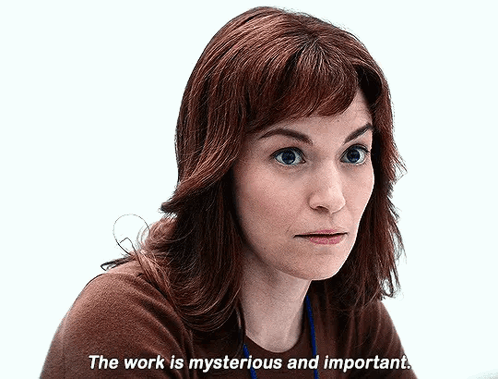
Instead, you have to be a "professional" representative of the company—one whose ideals and values may or may not align with your own. Being "professional" is, at its core, just an act—a standardized set of behaviors designed to make you less likely to give the company a bad name. In reality, "professionalism" is often just a more palatable way of describing being "fake" or inauthentic for eight hours a day, five days a week, for 60+ years.
From my perspective, this seems like sacrificing living for merely surviving. Being part of a group once greatly increased our chances of survival, so, much like Caleb, many of us willingly endure great suffering just to be accepted by the group and to secure the social and economic status that ensures our survival. And unfortunately, just like Caleb, many of us die in our 20s when we agree to spend the bulk of our time working for some company—except we aren’t buried until much later.
One of the most important themes of Severance, in my opinion, is that suffering is an unavoidable part of what it means to be human. In trying to avoid it, we often create more suffering than if we had just embraced it in the first place. That being said, if my hypothetical child ever told me they wanted to join a fraternity or sorority, I would tell them the same thing I told my younger brother—don't do it! And if, like my younger brother, they chose to do it anyway, I would have no choice but to allow it and let them face the consequences of their decision, both good and bad.
We all have our own paths to walk, and while it’s human to want to protect a loved one from unnecessary suffering, it’s also human to want to experience things firsthand. It’s unfortunate that Caleb, you, and I sometimes feel the need to join a group to secure or advance our survival, but that is human nature. And it wasn’t until I fully embraced my Divine nature that I found the courage to walk away from any group—without the fear of death.
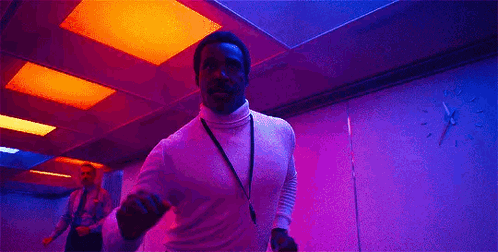
I used to feel so lonely because, try as I might, I could never find anyone like me. But I've learned that I will never find anyone like me because there is no one like me—but me—and that is my greatest power. I'm really not that weird, I'm certainly not special, but I am unique because I prefer my style and my taste to anyone else's. And I truly hope that Caleb's story and this newsletter will inspire you to consider whether the illusions of success, status, or guaranteed security is worth sacrificing your life and your unique expression for.
Hope Vs. Faith
I think we make the mistake of conflating hope and faith when they are two very different things. Hope is wishing that one's own will comes into fruition. Faith, on the other hand, is surrendering one's own will for the Divine will. Faith is indivisible from the unknown so you can't have faith in a specific outcome. But you can have faith that whatever the outcome is, it is the best outcome possible. You can't have faith until you've fully embraced that you don't know what's going to happen.
This chapter of my life is called Faith. Not only do I not know what's going to happen next, I'm also not allowed to revert to a prior way of being in which I did my best to manipulate my circumstances in a way that "guaranteed" my survival. This isn't my first time having to rely on faith but it does feel new this time because before, I always had a rough depiction of a destination in my mind's eye of where I was heading.
But now, I feel like I've arrived. Where exactly? I couldn't tell you! But what I can tell you is that from this point on, I'm going to have to have to be carried. I'm proverbially "up shit's creek without a paddle" and I feel like I've been intentionally put into these waters to perfect my faith.
Where I go next is no longer my decision, I'm just going to keep my head above water and allow the current to carry me. I'd be lying if I said that it wasn't a bit intimidating at times, but it honestly feels like I have no choice in the matter.
And I have truly have total faith that I'll end up exactly where I need to be.
With love,
Micheal Sinclair 💜
